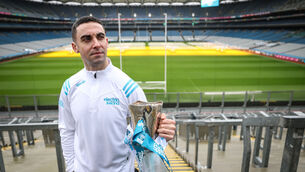Kelly’s hurling revolution
Will they, won’t they, should they? And yet, down the sports pages this week was an utterance far more radical, potentially more far-reaching for the GAA, than the Croke Park issue.
“Kelly to explore hurlers’ move to weaker counties”, the headline went. A proposal from GAA president Sean Kelly which, if adopted, would revolutionise hurling.













